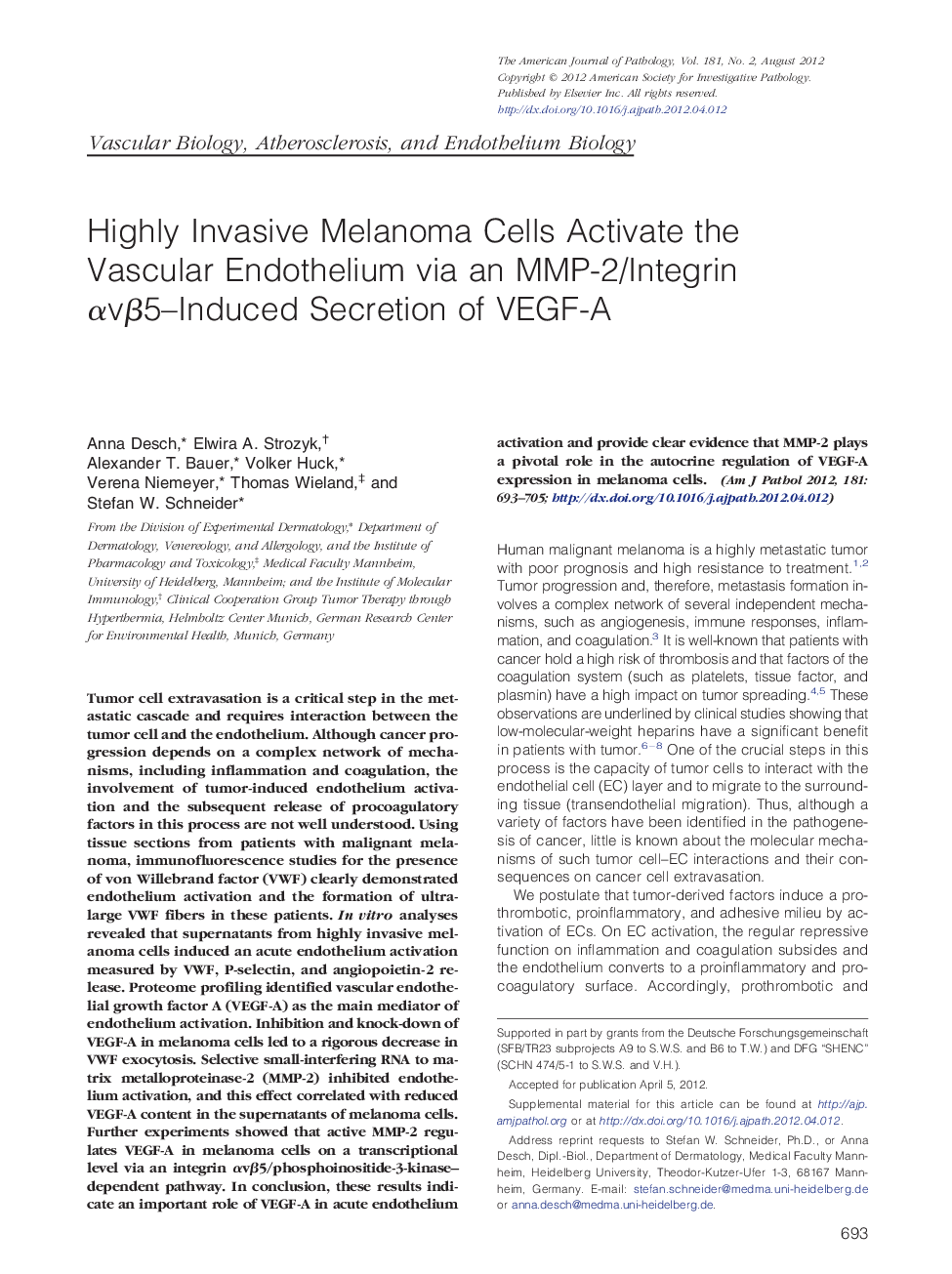| Article ID | Journal | Published Year | Pages | File Type |
|---|---|---|---|---|
| 5933457 | The American Journal of Pathology | 2012 | 13 Pages |
Tumor cell extravasation is a critical step in the metastatic cascade and requires interaction between the tumor cell and the endothelium. Although cancer progression depends on a complex network of mechanisms, including inflammation and coagulation, the involvement of tumor-induced endothelium activation and the subsequent release of procoagulatory factors in this process are not well understood. Using tissue sections from patients with malignant melanoma, immunofluorescence studies for the presence of von Willebrand factor (VWF) clearly demonstrated endothelium activation and the formation of ultra-large VWF fibers in these patients. In vitro analyses revealed that supernatants from highly invasive melanoma cells induced an acute endothelium activation measured by VWF, P-selectin, and angiopoietin-2 release. Proteome profiling identified vascular endothelial growth factor A (VEGF-A) as the main mediator of endothelium activation. Inhibition and knock-down of VEGF-A in melanoma cells led to a rigorous decrease in VWF exocytosis. Selective small-interfering RNA to matrix metalloproteinase-2 (MMP-2) inhibited endothelium activation, and this effect correlated with reduced VEGF-A content in the supernatants of melanoma cells. Further experiments showed that active MMP-2 regulates VEGF-A in melanoma cells on a transcriptional level via an integrin αvβ5/phosphoinositide-3-kinase-dependent pathway. In conclusion, these results indicate an important role of VEGF-A in acute endothelium activation and provide clear evidence that MMP-2 plays a pivotal role in the autocrine regulation of VEGF-A expression in melanoma cells.
